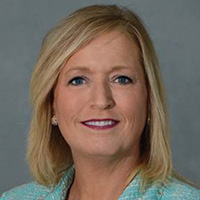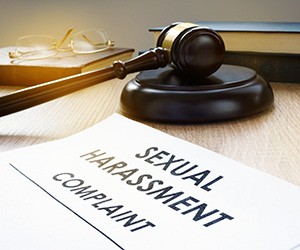Enlisting the services of an attorney is a key step in a plan to prevent and address sexual harassment within an organization and at meetings and events.
We checked in with two prominent attorneys who are well versed in and frequently speak about legal issues involving the meetings industry: Barbara Dunn O’Neal and Tyra Hilliard.
Barbara Dunn O’Neal, partner, Barnes & Thornburg, Chicago

What are some of the biggest legal issues meeting planners and organizations holding the events should be concerned about regarding sexual harassment and misconduct?
It is important that organizations establish a safe environment for their meetings and events. This starts with a statement of inclusion for all and highlights the professional environment of the meeting. It also makes clear that should any attendee engage in any conduct or statements which are contrary to this statement, such attendee may be removed from the meeting without refund.
In addition to the statement, attendees should be made aware of who they are to contact on-site if they experience or witness inappropriate conduct. That can be everyone from an “ombudsman” person at a help desk or a number to text if they wish to be contacted to address a concern.
What are an event organizer’s legal obligations regarding sexual harassment and misconduct?
There is a legal duty for an event organizer to have a safe environment for its event. That includes everything from ensuring the venue selected meets all codes and safety regulations but also that attendees are not put in harm’s way—either by a physical hazard or conduct of another organization. However, if an attendee engages in inappropriate behavior, the organization is limited in what it can do, as it can only control the person’s attendance at the event and not their employment.
Individuals who report that they have been the recipient of inappropriate behavior should report such behavior to their employer as well, as ultimately, it is the employer’s obligation to ensure their employees are not subject to a hostile work environment if their attendance or participation in the event was work-related.
What advice would you give for developing policies and procedures around sexual harassment prevention and claims, particularly with regard to meetings and events?
Draft a policy that is framed in a positive light—focusing on professional behavior and conduct conducive for learning and networking. The policy should set high, positive expectations for attendees rather than focusing on the bad behavior. Bottom line: The policy should make clear that the organization has the right to remove anyone from its meetings who is acting contrary to the policy.
The organization should have an on-site plan—just as it does with other emergencies—as to what to do, who to contact, etc. That is particularly important given that confidentiality in any review of a matter is critical, and there is always the possibility of a defamation claim against the organization from the person who is accused.
What is your advice for handling a claim during a meeting or event, particularly if attendees signed a code of conduct?
Confidentiality is key. Again, the organization runs the risk of a defamation claim if the review of inappropriate behavior is not conducted properly. As such, each organization should contact their legal counsel in advance of the meeting to review the code of conduct and the on-site procedures to review any claims.
How can planners and organizations best protect themselves from legal action if a claim arises?
Establish that the organization set the stage before, during and after the meeting to create a welcoming environment and to ensure that there is a process in place if inappropriate conduct occurs.
Components of the event—such as networking receptions with the service of alcohol—should be closely monitored by the organization to ensure any concerns with conduct can be addressed quickly. Document, document, document and discuss with legal counsel.
Tyra Hilliard, attorney and professor, College of Coastal Georgia

When the meeting planner is employed by the event organization, what are some important legal concerns regarding sexual harassment and misconduct at an event?
Meetings are fraught with risk regarding sexual harassment and misconduct because of their very nature. We take people away from home, keep them busy for long hours, put them in hotels, and often add alcohol.
It’s often a recipe for disaster. So one thing meeting planners and organizations need to focus on is creating a safe environment. A meeting planner in one of my sessions once said their staff took turns being the “designated sober staffer” (after the meeting functions were over for that day), so that someone was keeping their head, both in case something happened with an attendee but also so they made sure the other staff didn’t act inappropriately. Another issue is making sure that human resources thoroughly vets new employees.
Negligent hiring—hiring someone that you knew or should have known—had a propensity for violence or other negative behaviors can create a litigious situation.
What sexual harassment policies and procedures should be developed within an organization?
Organizations should institute written policies regarding sexual harassment that include defining what it is. Some behaviors that people truly think are okay fall into the definition of harassment, so educating them that this is not okay is part of preventing the problem.
Instituting scenario-based training regarding sexual harassment is also wise, again, because it illustrates what sexual harassment might look like and what the reporting structure is for the organization. Finally, there should be a multifaceted reporting structure because if the reporting structure is “report it to your direct supervisor,” there needs to be an alternative if the direct supervisor is the harasser.
How important is the development of a code of conduct, including language on sexual harassment?
I think this is very important for employees but also for those people involved with the meeting or event who are not employees, such as board members or volunteers. I have heard of numerous issues involving board members harassing meetings staff, often through some sense of entitlement or power.
If they are not employees, they are not covered by employment policies, so there needs to be a code of conduct and a due process procedure for reviewing and addressing their behavior, possibly resulting in their removal from the board if their behavior is egregious enough.
[Related Content:







